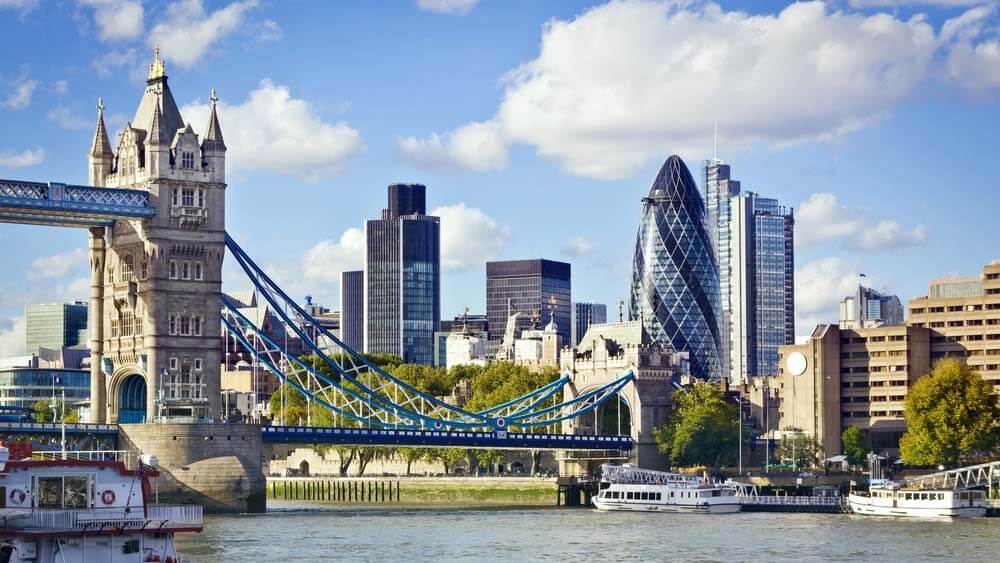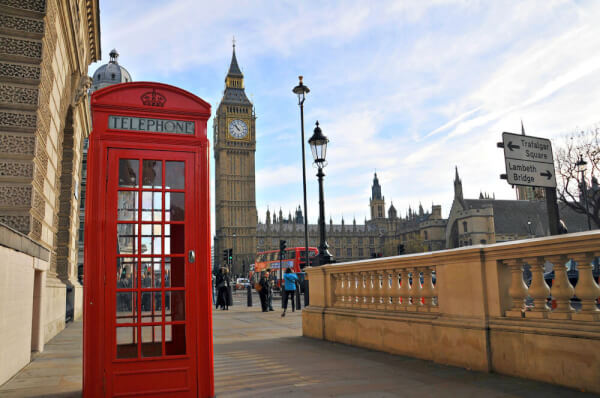Top 7 property management software systems in the UK
Get a full overview of the best property management software systems in the UK that will help you easily track and manage your overseas property.

Your friends warned you the weather would be bad. The news told you the future would be uncertain after Brexit. But you’ve packed your bags and moved to the UK anyway!
Congrats! As you’ve probably noticed, the UK remains one of the most welcoming, cosmopolitan and vibrant countries in the world. It’s also full of opportunities, especially for someone as international and interesting as you.
While you settle down with a cup of tea, we need to quickly run you through a few things that should be on your to-do list during your first month. These will save you a lot of hassle (and money).

Everyone working in the UK needs a national insurance (NI) number. It helps the government keep track of how much you’re paying in tax and contributions.
The good news is that you might already have one. If you’ve been given a biometric residence permit then turn it over. Your NI number should be printed on the back.
If you don’t have one then you’ll need to phone up and apply. Here are the numbers to call.
However, if you’re already entitled to UK employment then you can start work without one and then give it to your employer once it arrives. Find out if that includes you here.

There’s lots of good reasons to move to the UK, but the cost of housing isn’t one of them.
London is actually the third most expensive city in the world to find a home, although prices are a bit more reasonable outside the capital.
The first thing you’ll want to consider is a house or flat share. This is very common (especially among Londoners) and a great way to both lower your costs and make new friends. Check out SpareRoom, Gumtree or pop along to a Speed Flatmating event. Yes, that’s really a thing.
Most Brits use estate agents when buying or renting, despite the fact that estate agents are about as popular as bankers there. Estate agents tend to have offices clustered together in each town or borough, but you can search online too. Rightmove and Zoopla are the most popular property portals.

Opening a bank account in the UK used to be a real pain. Fortunately, it’s much easier now.
The two documents you will need are your proof of identity and your proof of address in the UK. The first part is easy with your passport, but the second part is a bit trickier for new arrivals.
You’ll need an official letter sent to your new address, such as one from a utility provider, council or another bank. Here’s a good tip - update your bank in your home country with your new address straight away, before you leave if possible, then get them to send a statement to your new home in the UK.
Alternatively, if you're a student you can ask your college or university to provide you with a letter confirming your address.
If you need more advice, check out our complete guide on how to open a bank account in the UK.

The Brits are very proud of their National Health Service. It’s mostly free too, although you might pay a small amount for medication depending on your circumstances and which part of the UK you live in.
You can also pay for private health care, usually to get treated faster.
Free NHS healthcare is based on only one thing - your residency. Take your ID and an official letter as proof of address and register with a local doctor’s surgery as early as possible. Don’t wait until you are sick otherwise it will take longer to get the care you need.
If you need urgent treatment, go to your nearest Accident & Emergency (A&E). For anything minor, speak to a local pharmacist. There’s one on most high streets.
Also, there are two numbers you need to know. 999 is for the emergency services and 111 is for non-urgent healthcare advice.

You’ll want to set up wifi at home and switch to a British mobile phone contract as soon as possible. (They don’t say ‘cellphones’ like the Americans).
The best place to start is Uswitch. If you’re taking your phone from home then look for a ‘sim only’ deal in the UK. You might want a good roaming deal too if you plan to travel back often.
If you’re impatient for broadband (and live in London) then speak to Relish. They promise to get your WiFi up and running on the same day.

The UK has a vibrant job market for a wide range of skills. If you speak more than one language or can fill one of these key jobs then you’re seriously needed. Trained in classical ballet? Yes, that’s just one of the skills urgently in demand.
Upload your CV and start browsing jobs on sites like Indeed, Reed, TotalJobs, JobSite, Monster and GuardianJobs. That last one is great for graduate and professional jobs.
There’s also a jobs site run by the UK government, as well as a separate board for [NHS Jobs]http://www.jobs.nhs.uk).
You can also visit nearby recruitment agencies who can help connect you with an employer. Most specialise in a specific industry or type of job.
Finally, many companies list jobs on their own websites (like these Wise jobs). You can always make a speculative application too if you love a particular company and can convince them that you’d add value.
If you consider getting a job in the UK, use this handy take-home pay calculator to get your monthly or annual net salary after normal UK tax and National Insurance contributions.
And remember, there’s no change to employment rights for EU nationals while Brexit discussions are ongoing.

Not interested in working for someone else? The UK is a great place to start your own company. It has business-friendly regulations, a valuable domestic market and a lot of credibility abroad - even after Brexit.
There are three main types of British companies, which includes sole traders and partnerships.
Limited companies are the most common choice. There’s no minimum legal capital required for them here so you can set it up with less money too.
You’ll need to choose a company name that isn’t similar to any others in the UK so start by checking the register at Companies house. You can then follow the procedures set out here.
You'll probably want to get a Wise Business account setup if you plan on trading overseas or importing to the UK.

If you’re bringing children to the UK then they are entitled to free education between the ages of 5 and 15.
First though, we need to clear up some confusion.
Private schools in the UK are misleadingly called ‘public schools’, although many now prefer the term ‘independent schools’. Most of the British public send their children to ‘state schools’, although some types of state schools have a lot of independence too.
For example, there are faith schools, free schools, academies and technology colleges, all with different focuses and admissions criteria. Still confused? You can read more here about them here.
Before applying to a state school on behalf of your children, you’ll first want to compare how good they are. Check local school performance reports here for England, Scotland, Wales and Northern Ireland. You’ll need to do your own research on public schools and contact them directly.
If your children aren’t old enough for primary school then British nurseries can provide them with day care. If you live in England or Wales, start by entering your postcode here. For Scotland, check out local childcare services here.
Wise is the fast, fair new way to send money abroad.
If you're making international payments you might be paying much more than you think - traditional brokers and banks rarely use the true exchange rate.
This is how it works:
Download Wise for iOS or Android.
*Please see terms of use and product availability for your region or visit Wise fees and pricing for the most up to date pricing and fee information.
This publication is provided for general information purposes and does not constitute legal, tax or other professional advice from Wise Payments Limited or its subsidiaries and its affiliates, and it is not intended as a substitute for obtaining advice from a financial advisor or any other professional.
We make no representations, warranties or guarantees, whether expressed or implied, that the content in the publication is accurate, complete or up to date.

Get a full overview of the best property management software systems in the UK that will help you easily track and manage your overseas property.

Are you looking for the best Airbnb management companies in London? Find out all about the top local providers to take care of your rental property overseas.

Interested in buying land in Scotland? Here’s everything you need to know about buying a plot of land abroad as an American.

If you’re considering moving to the UK, then you’ll want to read this moving to UK guide first! Find all you need to know about moving to the UK.

Everyone needs to call home every now and then. To find out how to call UK from US, take a look at this article – we'll show you all tips & area codes you need!

Are you pregnant? Congratulations - this is one of the most exciting periods of your life. But if you’re living abroad as an expat, visitor, or non-resident...